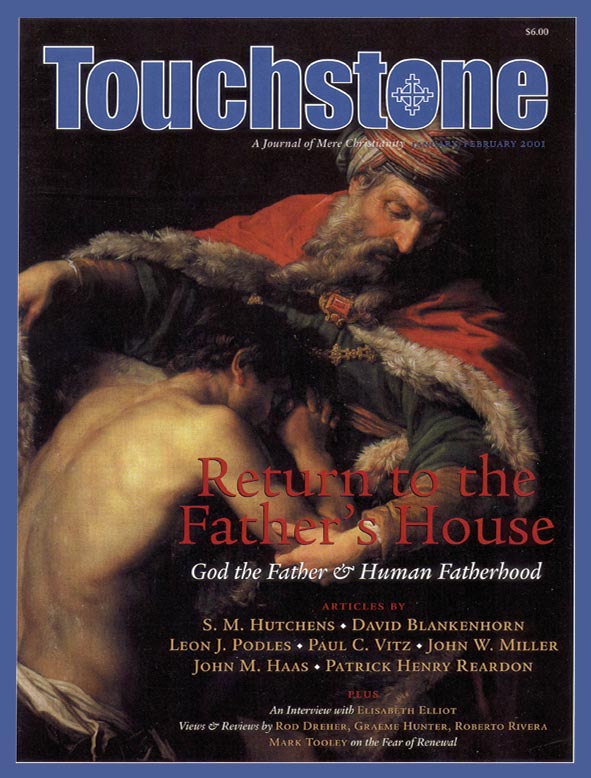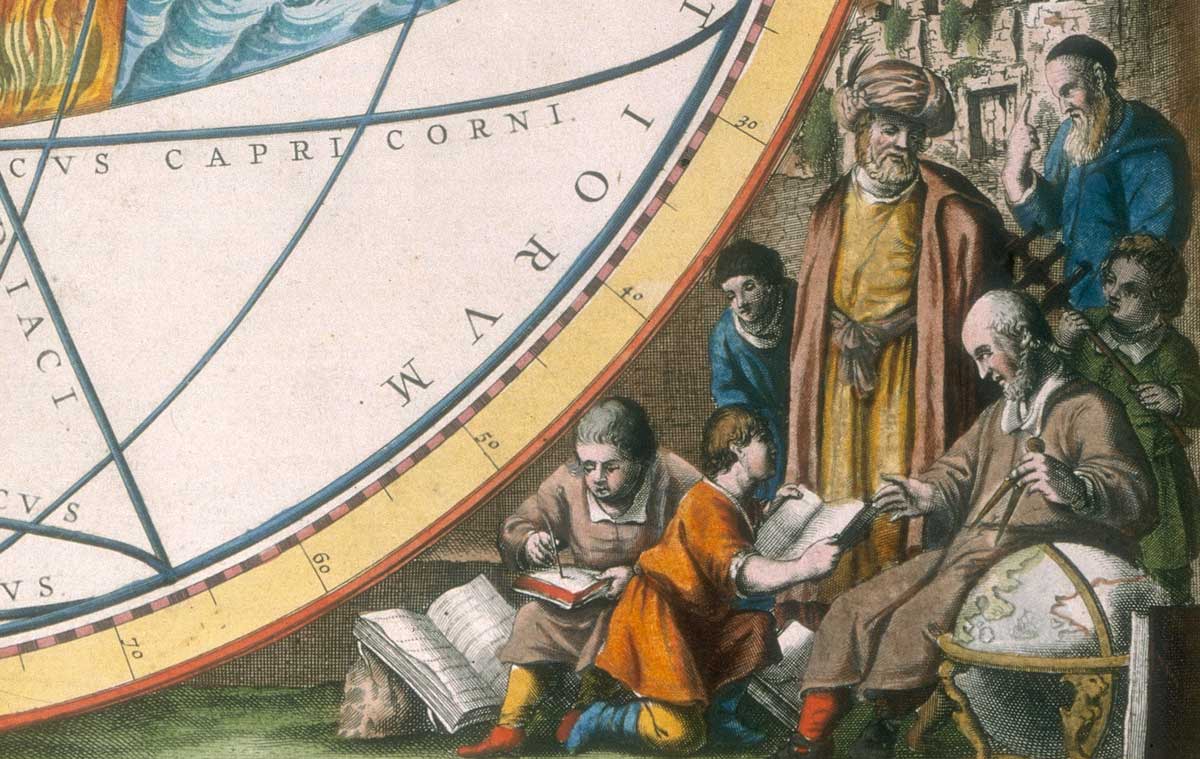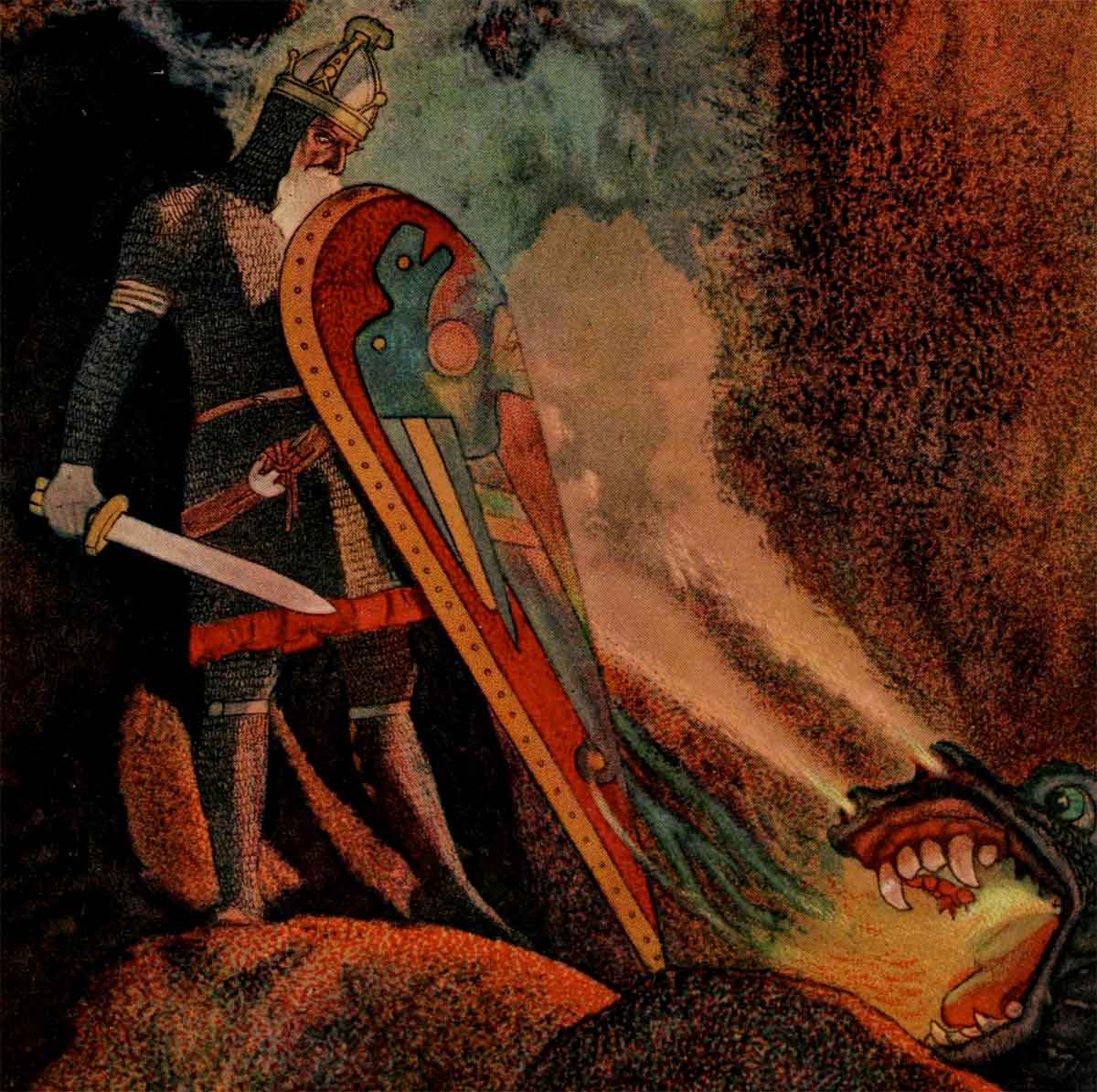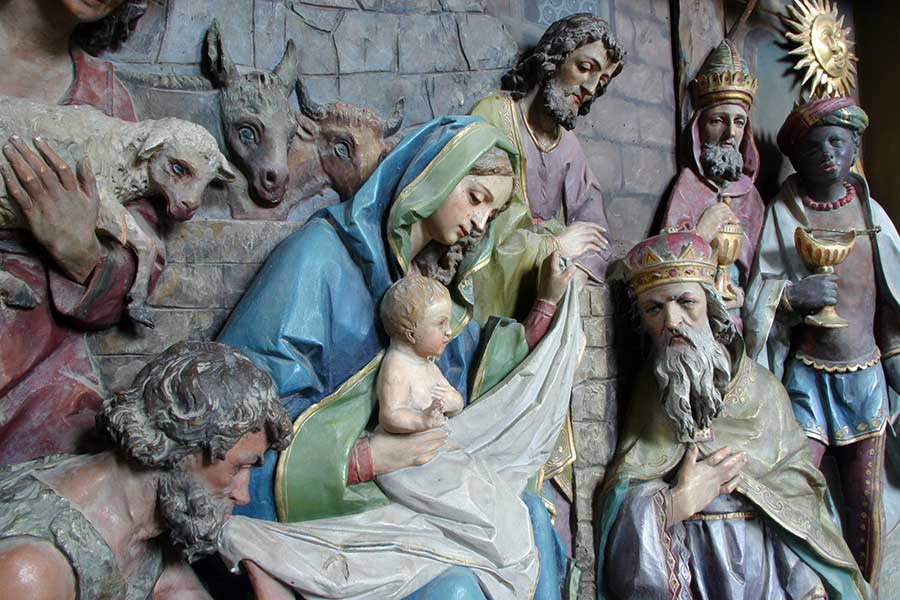Uncommon Valor & Common Virtue
Flags of Our Fathers
by James Bradley with Ron Powers
New York: Bantam Doubleday Dell, 2000
(376 pages; $24.95, cloth)
reviewed by Roberto Rivera
Chances are that the names John (Jack) Bradley, Franklin Sousley, Harlon Block, Ira Hayes, Rene Gagnon, and Mike Strank don’t ring a bell. But you’ve seen them. They are the five Marines and the Navy corpsman (Bradley) who, on February 23, 1945, were photographed raising the American flag on Iwo Jima. The photograph, arguably the most famous of the twentieth century, inspired a nation and served as the model for the largest bronze sculpture in the world: the Marine Corps Memorial or, as it is known in Washington, the Iwo Jima.
The sextet’s names don’t appear on the memorial. Instead, visitors read that “uncommon valor was a common virtue” on Iwo Jima. Truer words have seldom been spoken. In the nearly 2,700 months since our independence, one month has seen the most decorations for valor: February 1945, the month of the battle for Iwo Jima. Prior to the Marine landing, we bombed Iwo Jima incessantly, making sure that nothing remained alive on what the Japanese called “sulfur island.” The problem was that there were no Japanese on the island; they were all in it—in a sixteen-mile-long series of underground tunnels.
A new book, Flags of Our Fathers, tells the story of the men—actually boys—who raised the flag. It was written by John Bradley’s son James and Ron Powers. Growing up, as his father did, in Appleton, Wisconsin, James Bradley knew that his dad was one of the men in the photo but little else. His father, like many men who fought in World War II, didn’t say much about his experiences. (He told his family that the real story of Iwo Jima was “the men who didn’t come back.”) But Bradley père was exceptionally reticent. How reticent? It was at his funeral in January 1994 that his wife and children first learned that he had been awarded the Navy Cross, for what happened after the flag-raising at Iwo Jima.
Corpsman Bradley rescued a wounded Marine who was pinned down by machine-gun fire. He first dodged what could literally be called a “murderous fusillade.” He then shielded the wounded man with his own body while ministering to him, and then pulled him to safety through another fusillade. For these actions, he was awarded the nation’s second-highest decoration for valor. Yet he never told his family. Had he told his family, he probably would have finished the story with his favorite phrase, “It’s as simple as that.”
The contrast between the man he knew growing up and the war hero led Bradley fils to find out everything he could not only about the six men who raised the flag but also about the men who took Iwo Jima. Bradley was intrigued by the idea that “uncommon valor” was a “common virtue” among a group of American boys. Why these young men? What produced that valor?
After speaking to survivors and examining the archives, he came to the conclusion that he had been looking at the question the wrong way. He had focused on the “uncommon valor.” He realized that the answer to his question lay on the “common virtue” side of the equation. These men weren’t intrinsically braver than previous or subsequent generations. What produced their actions was their common decency. As the book puts it, “football, religious faith, and strong mothers” ran through all six of their lives. (Bradley and Strank were, in particular, devout Roman Catholics.) Nearly all of them had helped raise their younger siblings, with the attendant sense of responsibility that produces. In other words, they were already, at the age of 18, men of character—with a devotion to duty and loyalty to their friends. As simple as that.
Prior to reading Flags of Our Fathers, I had re-read James Davison Hunter’s The Death of Character, which begins with the declaration, “Character is dead . . . its time has passed.” Since I think that both Bradley and Hunter are right, that leaves an obvious, albeit uncomfortable, question: Can today’s America produce the kind of uncommon valor on display at Iwo Jima? At the risk of sounding like my dad, the answer is, “I doubt it.” Bradley and company weren’t only men of character, they were heirs to moral and civic traditions going back centuries—traditions that, for them, took precedence over notions of self-fulfillment or self-expression. These traditions answered the question: to whom and to what am I obligated? Once you’ve got that question down, the other issues fall into place. Does anyone seriously believe that these traditions, or traditions similar to them, hold similar sway over Americans today?
Stephen Ambrose, who knows a thing or nine about war books, says that Flags of Our Fathers is “the best battle book I ever read. These stories, from the time the six men who raised the flag at Iwo Jima enlisted, their training, and the landing and subsequent struggle, fill me with awe.” I couldn’t say it any better. Buy the book. It’s as simple as that.
Roberto Rivera is a Fellow at the Wilberforce Forum at Prison Fellowship. His work has appeared in Books & Culture, and he is also a regular contributor to the web magazine Boundless. He is a contributing editor for Touchstone.
subscription options
Order
Print/Online Subscription

Get six issues (one year) of Touchstone PLUS full online access including pdf downloads for only $39.95. That's only $3.34 per month!
Order
Online Only
Subscription

Get a one-year full-access subscription to the Touchstone online archives for only $19.95. That's only $1.66 per month!
bulk subscriptions
Order Touchstone subscriptions in bulk and save $10 per sub! Each subscription includes 6 issues of Touchstone plus full online access to touchstonemag.com—including archives, videos, and pdf downloads of recent issues for only $29.95 each! Great for churches or study groups.
Transactions will be processed on a secure server.
more from the online archives
calling all readers
Please Donate
"There are magazines worth reading but few worth saving . . . Touchstone is just such a magazine."
—Alice von Hildebrand
"Here we do not concede one square millimeter of territory to falsehood, folly, contemporary sentimentality, or fashion. We speak the truth, and let God be our judge. . . . Touchstone is the one committedly Christian conservative journal."
—Anthony Esolen, Touchstone senior editor









